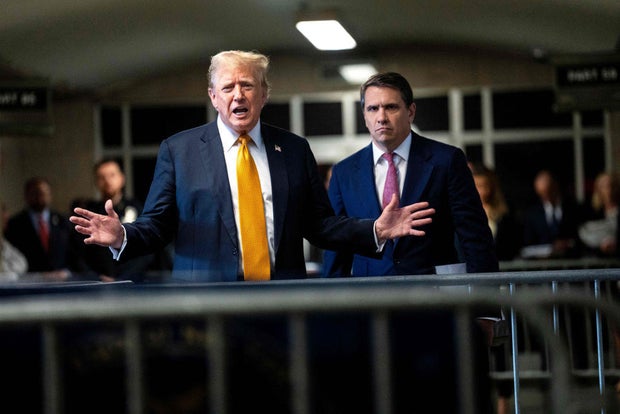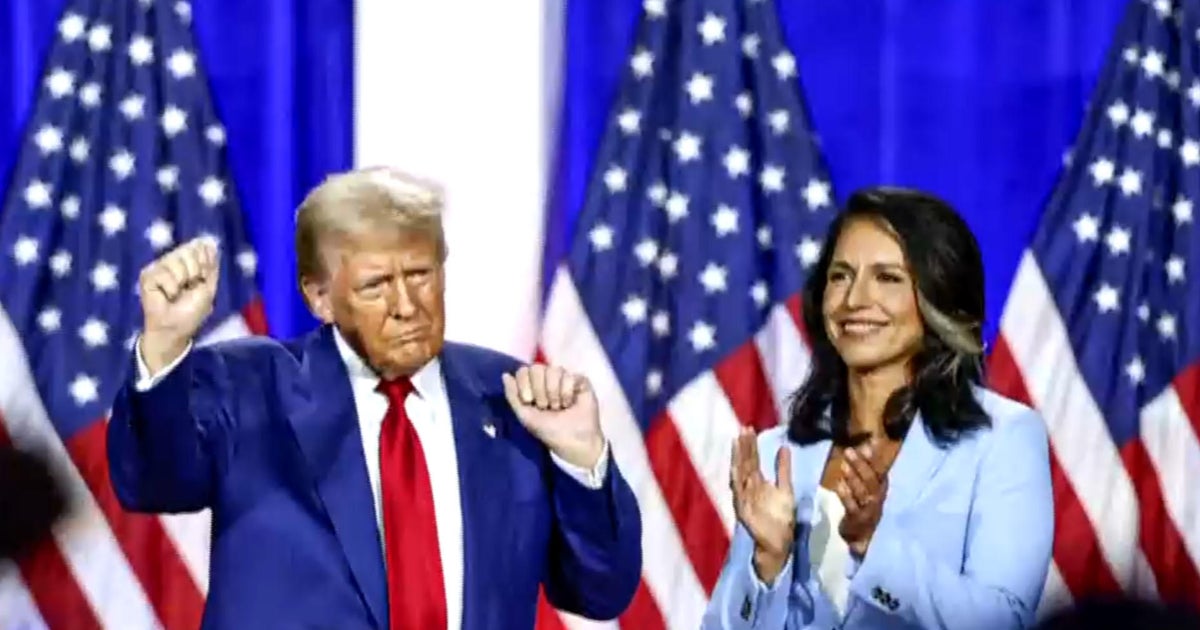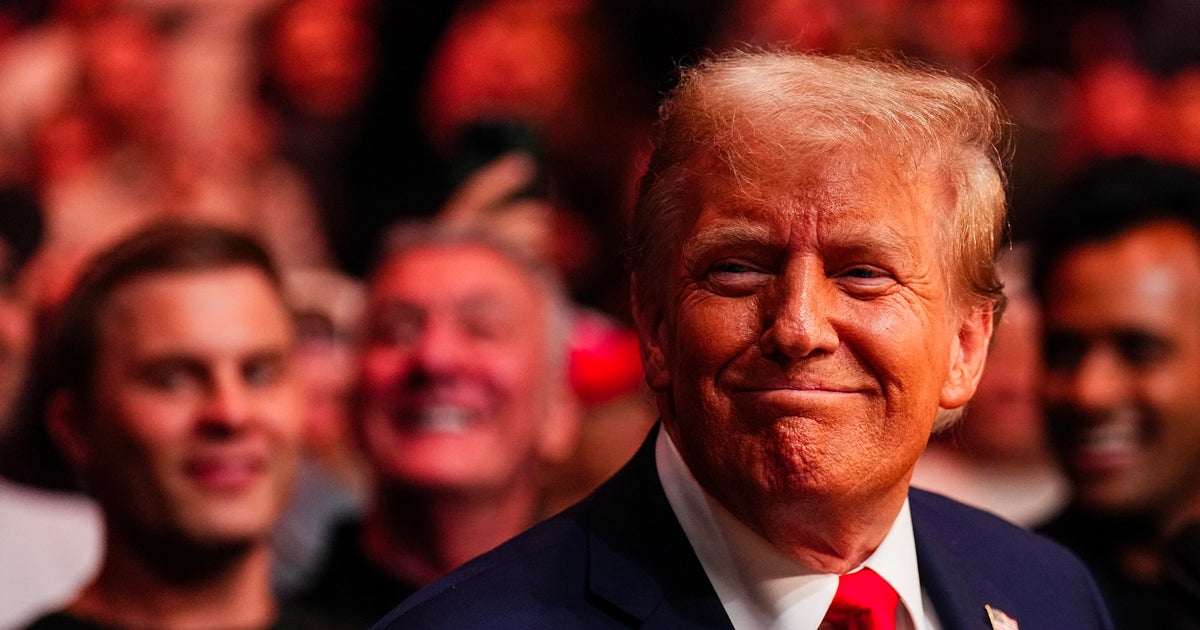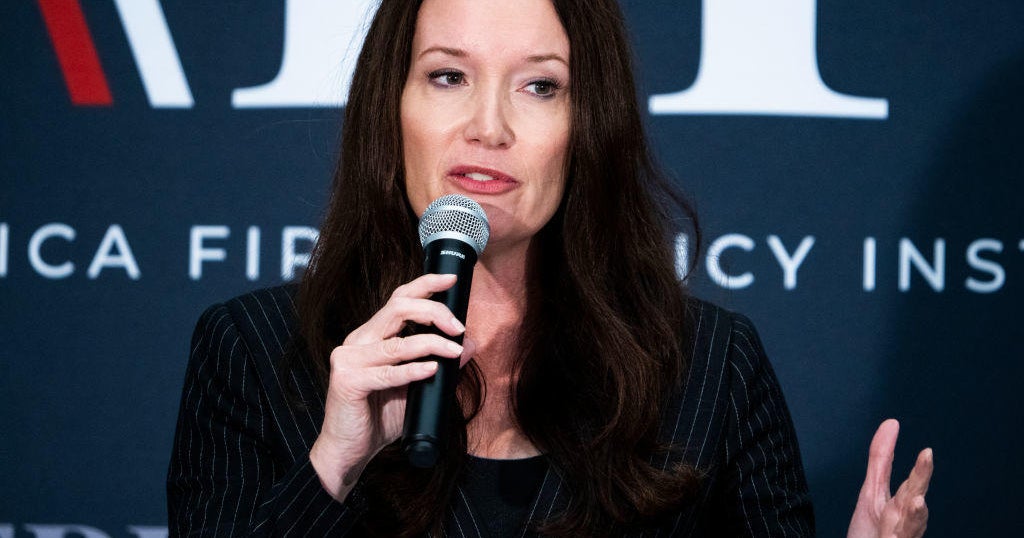CBS News
What’s next after Trump’s conviction in his “hush money” trial? How he might appeal the verdict

Washington — Former President Donald Trump’s historic conviction on 34 felony counts of falsifying business records brought to an end the trial stage of the case stemming from a “hush money” payment made to adult film star Stormy Daniels in 2016. But it marks the beginning of a potentially lengthy appeals process that could take years to unfold.
A jury of 12 New Yorkers found Trump guilty on all counts, handing down a landmark verdict Wednesday that marks the first time a former U.S. president has been convicted of a crime. The jury deliberated for less than 10 hours after the six-week trial that included testimony from 22 witnesses and saw Trump held in contempt of court for violating a gag order 10 times.
Justice Juan Merchan is set to sentence the former president on July 11, four days before the start of the Republican National Convention where Trump is set to receive the party’s nomination for president. Trump could face up to four years in prison and a $5,000 fine for each of the 34 counts, but Merchan has wide discretion in imposing a sentence.
The former president and Todd Blanche, his lead defense attorney, have vowed to challenge the conviction. Under state law, they have 30 days from the date of sentencing to file a written notice of appeal with the New York Supreme Court, and six months to file their full appeal.
The appeals process
“We think an appeal has a lot of merit. We think we’re going to win on appeal,” Blanche told CBS News chief election and campaign correspondent Robert Costa on Friday.
The case brought by Manhattan District Attorney Alvin Bragg was filed in the New York Supreme Court, the trial court. The conviction will be appealed to the Appellate Division, First Judicial Department. After the Appellate Division rules, the losing party can then ask the Court of Appeals, New York’s highest-level court, to review the adverse ruling from the lower court.
In order for the case to land before the U.S. Supreme Court, Trump and his lawyers would have to raise a federal question during the appeals process.
“At the end of the day, a defense lawyer or defense team, after receiving a pretty devastating verdict, guilty on every single count, you will take every possible approach to try to win an appeal,” said Jason Berland, who worked as a prosecutor in the Manhattan District Attorney’s Office for eight years. “If you take the kitchen-sink approach and throw enough hooks out there, the court has to hang their hat on one hook.”
Possible grounds for appeal
Doug Mills/The New York Times/Bloomberg via Getty Images
Blanche previewed some of the “key” issues they plan to raise on appeal in his interview with CBS News, including the statute of limitations for the charges; Manhattan as the venue for trying the case; the structure of the prosecution; and whether Merchan should have recused himself. Merchan donated $35 to Democratic causes during the 2020 election cycle and his daughter worked for a Democratic consulting firm, but he rejected requests by Trump to step aside from the case.
“This is an unprecedented case, no matter what anybody on either side of the aisle says about it. This has never happened before in the history of our country,” Blanche said. “I don’t just mean bringing an indictment against the former president. I mean, the nature of these charges, how long ago this conduct happened. You have a misdemeanor that becomes a felony with another crime. The other crime is another state misdemeanor.”
Prosecutors had argued that Trump unlawfully falsified business records with the intent to conceal or commit another crime, which elevated the charges to felonies. They said that other crime was a conspiracy to violate state election law, a novel legal theory that hadn’t been raised before. Prosecutors then pointed to three possible “unlawful means” by which state election law was broken: tax law violations, falsification of other business records or violations of a federal elections law.
Jurors did not have to unanimously agree on the type of “unlawful means.” They did have to find that Trump caused the business records to be altered and that he did so to cover up or commit a separate crime.
“Can you use a state election law for a federal candidate, and can you use a federal election law in a state prosecution?” Jessica Levinson, CBS News legal contributor, said of the “live issues” for appeal.
Blanche told CNN in a separate interview Thursday night that he could also raise the publicity surrounding witnesses and the trial proceedings.
“Our system of justice isn’t supposed to be a system where every person that walks in the courtroom knows about the case,” Blanche said Thursday.
The jury included one member who said they get their news from Truth Social, the platform owned by Trump, and X, formerly known as Twitter. Another juror said their media consumption includes Fox News.
Blanche also said he could take issue with Daniels’ testimony on appeal. She provided graphic details while testifying about an alleged sexual encounter with Trump in 2006, which he denied. Blanche moved for a mistrial after Daniels testified, arguing she went too far, but Merchan denied the request. The judge acknowledged that “there were some things that are probably better left unsaid,” but said he was “surprised” there were not more objections from the defense.
Berland, the former prosecutor, predicted Trump’s team will challenge the timing of the trial, which came just months before the presidential election. He also said they could look at whether certain evidence was improperly admitted or excluded, and whether Merchan abused his discretion in certain rulings during the trial.
Caroline Polisi, a criminal defense attorney, told “CBS Mornings” that Trump’s legal team could raise issues on both the legal side and how the trial played out.
On the structure of the case, she said there could be due process concerns in terms of a criminal defendant “being put on notice with what exactly he or she is being charged with.” While the indictment and statement of facts lists the 34 counts and the business records associated with each, neither specified the “unlawful means” through which state election law was violated.
Any hopes for a quick resolution — or one before the Nov. 5 election — are likely to be dashed, since appeals move slowly through the New York courts. Polisi pointed to the case against disgraced Hollywood producer Harvey Weinstein, whose conviction was overturned by New York’s highest court last month. That decision came four years after he was convicted of rape in the third degree and criminal sexual act in the first degree.
“It’s a long road,” she said. “The wheels of justice move slowly.”
CBS News
Former Trump national security adviser says next couple months are “really critical” for Ukraine
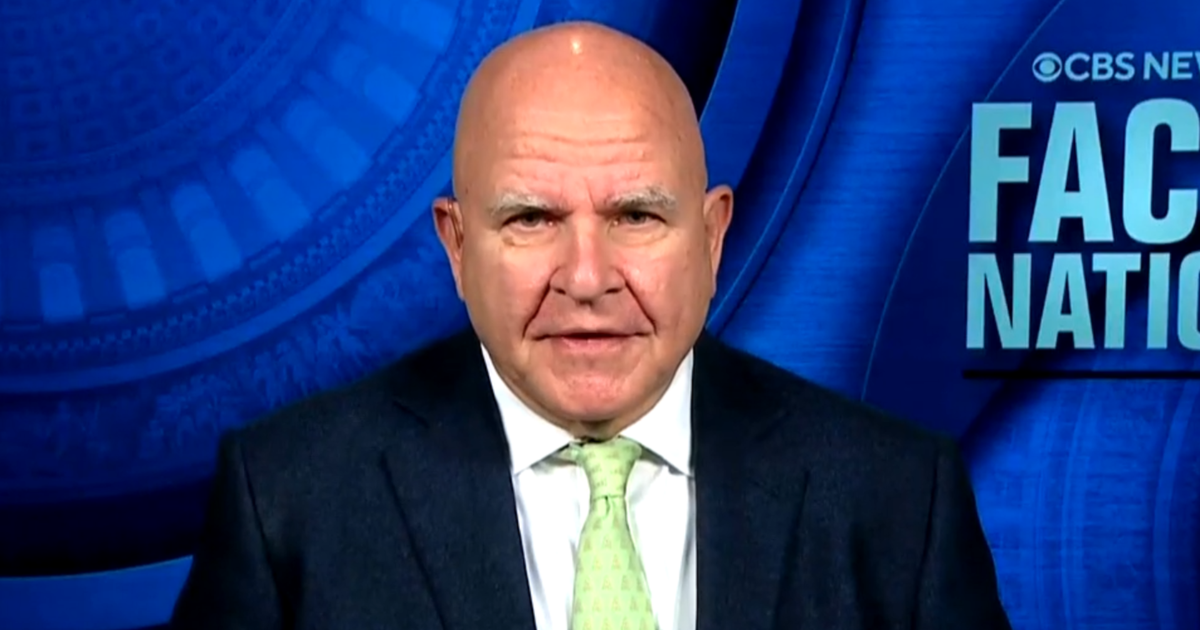
Washington — Lt. Gen. H.R. McMaster, a former national security adviser to Donald Trump, said Sunday that the upcoming months will be “really critical” in determining the “next phase” of the war in Ukraine as the president-elect is expected to work to force a negotiated settlement when he enters office.
McMaster, a CBS News contributor, said on “Face the Nation with Margaret Brennan” that Russia and Ukraine are both incentivized to make “as many gains on the battlefield as they can before the new Trump administration comes in” as the two countries seek leverage in negotiations.
With an eye toward strengthening Ukraine’s standing before President-elect Donald Trump returns to office in the new year, the Biden administration agreed in recent days to provide anti-personnel land mines for use, while lifting restrictions on Ukraine’s use of U.S.-made longer range missiles to strike within Russian territory. The moves come as Ukraine marked more than 1,000 days since Russia’s invasion in February 2022.
Meanwhile, many of Trump’s key selection for top posts in his administration — Rep. Mike Waltz for national security adviser and Sens. Marco Rubio for secretary of state and JD Vance for Vice President — haven’t been supportive of providing continued assistance to Ukraine, or have advocated for a negotiated end to the war.
CBS News
McMaster said the dynamic is “a real problem” and delivers a “psychological blow to the Ukrainians.”
“Ukrainians are struggling to generate the manpower that they need and to sustain their defensive efforts, and it’s important that they get the weapons they need and the training that they need, but also they have to have the confidence that they can prevail,” he said. “And any sort of messages that we might reduce our aid are quite damaging to them from a moral perspective.”
McMaster said he’s hopeful that Trump’s picks, and the president-elect himself, will “begin to see the quite obvious connections between the war in Ukraine and this axis of aggressors that are doing everything they can to tear down the existing international order.” He cited the North Korean soldiers fighting on European soil in the first major war in Europe since World War II, the efforts China is taking to “sustain Russia’s war-making machine,” and the drones and missiles Iran has provided as part of the broader picture.
“So I think what’s happened is so many people have taken such a myopic view of Ukraine, and they’ve misunderstood Putin’s intentions and how consequential the war is to our interests across the world,” McMaster said.
On Trump’s selections for top national security and defense posts, McMaster stressed the importance of the Senate’s advice and consent role in making sure “the best people are in those positions.”
McMaster outlined that based on his experience, Trump listens to advice and learns from those around him. And he argued that the nominees for director of national intelligence and defense secretary should be asked key questions like how they will “reconcile peace through strength,” and what they think “motivates, drives and constrains” Russian President Vladimir Putin.
Trump has tapped former Rep. Tulsi Gabbard to be director of national intelligence, who has been criticized for her views on Russia and other U.S. adversaries. McMaster said Sunday that Gabbard has a “fundamental misunderstanding” about what motivates Putin.
More broadly, McMaster said he “can’t understand” the Republicans who “tend to parrot Vladimir Putin’s talking points,” saying “they’ve got to disabuse themselves of this strange affection for Vladimir Putin.”
Meanwhile, when asked about Trump’s recent selection of Sebastian Gorka as senior director for counterterrorism and deputy assistant to the president, McMaster said he doesn’t think Gorka is a good person to advise the president-elect on national security. But he noted that “the president, others who are working with him, will probably determine that pretty quickly.”
CBS News
Sen. Van Hollen says Biden is “not fully complying with American law” on Israeli arms shipments

Watch CBS News
Be the first to know
Get browser notifications for breaking news, live events, and exclusive reporting.
CBS News
Rep.-elect Sarah McBride says “I didn’t run” for Congrees “to talk about what bathroom I use”
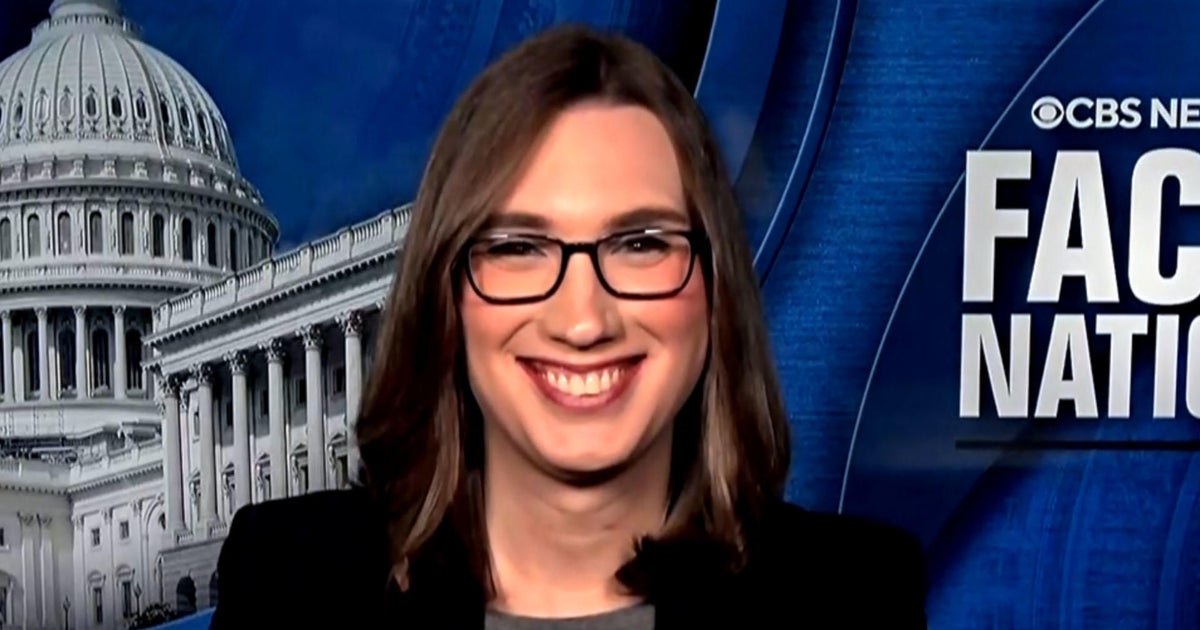
Watch CBS News
Be the first to know
Get browser notifications for breaking news, live events, and exclusive reporting.


